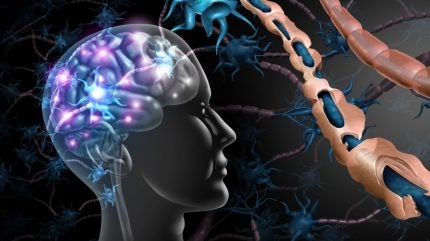
NeuroGenesis Bio has reported positive outcomes from an interim analysis during the open-label extension of a Phase II clinical trial for NG-01 in treating progressive multiple sclerosis (MS).
A lead candidate of the company, NG-01 is an autologous bone marrow-derived stem cell therapy. The product is designed to secrete greater remyelinating and neurotrophic factor levels in the central nervous system at the injury site.

Discover B2B Marketing That Performs
Combine business intelligence and editorial excellence to reach engaged professionals across 36 leading media platforms.
The randomised, placebo-controlled, double-blind Phase II study is designed to evaluate the long-term impact of NG-01 on serum biomarkers, physical and cognitive functions, and subject-reported outcomes in progressive MS.
It assessed the tolerability, safety, and efficacy of transplantation of NG-01 in subjects with progressive MS.
Initially, 48 participants were divided into three groups to receive intrathecal or intravenous injections of NG-01 or a placebo.
During the extension phase, patients received one to three intrathecal injections of NG-01 at three to six-month intervals.

US Tariffs are shifting - will you react or anticipate?
Don’t let policy changes catch you off guard. Stay proactive with real-time data and expert analysis.
By GlobalDataThe interim analysis included 23 patients who had received at least two NG-01 treatments alongside standard care, with a follow-up period of 12 to 18 months.
Results indicated a significant reduction in neurofilaments-light chains (NfL) and glial fibrillary acidic protein (GFAP) levels, with a mean decrease of 33.2% in NfL and 22% in GFAP after the second dose.
Both NfL and GFAP are biomarkers indicative of neurodegeneration and inflammation in MS.
Walking ability, measured by the timed 25-foot walk test, also improved significantly in 16 patients after 12 months.
The trial reported no serious adverse events with headache and backache seen as minor side effects.
NeuroGenesis CEO Tal Gilat said: “We are extremely pleased with these promising results of our NG-01 cells in patients with progressive MS.
“Following the observations on the longitudinal decrease in NfL and GFAP, the FDA has cleared our Phase IIb, global, multicentre study with a double-blind, randomised, and placebo-controlled design to primarily test the efficacy and safety of different doses of intrathecal administration of NG-01 in progressive MS patients.
“We are now preparing for the Phase II double-blinded study and have already initiated work with multiple leading hospitals around the world.”



